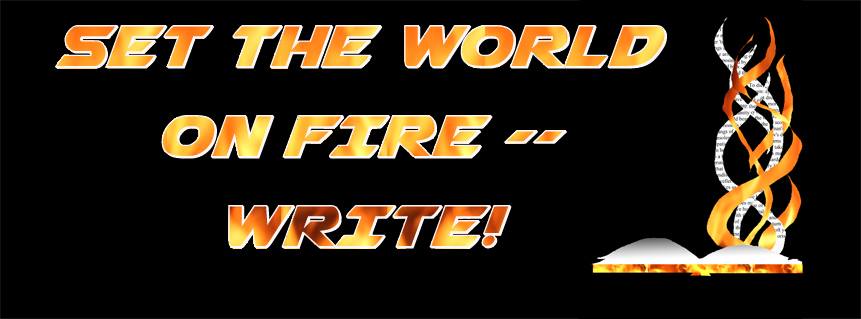(Originally posted on LiveJournal)
It all started with me making sure a friend had a quotation right. Not that I doubted her (she’s usually meticulous about such things), but after all those years with Jeopardy!, the inclination is not to trust without verification.
 At our screenwriters group last Saturday, in a discussion about the difficulty of finding really good scripts (one of our members is a producer and she’s been looking for a suitable property), things veered into the matter of good writing. So my friend pulled out what she said was her favorite quote.
At our screenwriters group last Saturday, in a discussion about the difficulty of finding really good scripts (one of our members is a producer and she’s been looking for a suitable property), things veered into the matter of good writing. So my friend pulled out what she said was her favorite quote.
“A writer is someone for whom writing is more difficult than it is for other people.” — Thomas Mann
I liked that. Especially since I’ve encountered either dewy-eyed aspirants who expect to breeze through their first manuscript and everyone will fall down in love with it, OR people who think writing is easy and come up to me saying “I have this great idea for a story, and you should write it!”
Writing is work. Enough work, that I’d rather work on my own endless supply of ideas than take on everyone else’s.
However, I can’t ignore some of these other truths I ran across in verifying the Mann quotation.
Like this one:
“No passion in the world is equal to the passion to alter someone else’s draft.” — H.G. Wells
Too true. It’s one of the things that happens in the screenwriting group. We’re great at brainstorming other angles for someone’s story, when we think the script has gone astray. Sometimes this is a good thing, but sometimes, it can be very frustrating for the writer on the hot seat, because the ideas go so far away from the writer’s original intention.
Sticking to your original intention and passion in the face of peer pressure isn’t easy. So this next quotation is a great reminder of where a writer should be starting from.
“Write something to suit yourself and many people will like it; write something to suit everybody and scarcely anyone will care for it.” — Jesse Stuart
It is difficult to hold to one’s center, especially when you know the craft may need polishing. But I believe that’s the way to go. We are all individuals, we all have our own stories. Our stories are unique because no one else has quite the same perspective on things. We just have to work the craft, to get what we want to say said as clearly as possible. Of course, we all hope that we can touch the audience in some fashion or other.
“The skill of writing is to create a context in which other people can think.” — Edwin Schlossberg
But it is work. Hard work. There was one quotation on the quotes page I was looking at that I took enough exception to that I felt it was worth copying here and commenting on it.
“Any word you have to hunt for in a thesaurus is the wrong word. There are no exceptions to this rule.” — Stephen King
Now, much as I like King’s work, and acknowledge his skill, I think he’s flat wrong. And I speak from experience. My poem about Don Juan (which I’ve mentioned before) was carefully and laboriously composed with both thesaurus and dictionary close at hand. I wanted the exactly right word in each place, for sound, rhythm and meaning. Sometimes what I’d originally intended to express with an adjective and noun got turned into a verb phrase because of inspiration from the thesaurus.
Sometimes in general writing, you know you don’t really want the first word that pops into your head — because it has the wrong feel, or coloration, or emphasis. And the thesaurus is the best tool for finding that better word. And, frankly, I prefer the original organizational plan from Mr. Roget, not the more modern dictionary type organization. Roget organized things in a topical fashion, with opposites near at hand, with gradations of meaning. Just wandering through a true Roget’s Thesaurus is a lush and inspiriting experience. So, yeah, I REALLY disagree with Stephen King on that.
Writing is a compulsion, for real writers (hence the difficulty Mann mentions).
“The only reason for being a professional writer is that you can’t help it.” — Leo Rosen
If you cringe at the idea of not telling stories, you’re a writer. No matter what level of craft you have achieved. If you can’t stop stories from bubbling up, you’re a writer. No matter how well educated you feel about storytelling. If you can’t help it, give into it, and get on with it.
“Be generous, be delicate, and always pursue the prize.” — Henry James
Here endeth the lesson. Go ye forth and write!

Comments
sartorias – Jul. 10th, 2008
I think using the thesaurus is wrong when you don’t know the connotations for the words. I use it as a memory aid, and I never use a word I’m not certain the meaning of.
scribblerworks – Jul. 10th, 2008
Oh, yes! Exactly.
Hence the heavy use of BOTH thesaurus and dictionary when I was working on my Don Juan poem. It was a constant back and forth between the two. I’d get caught by a possible from the thesaurus, and then run to the dictionary to double check that it had exactly the meanings and coloration I wanted.
